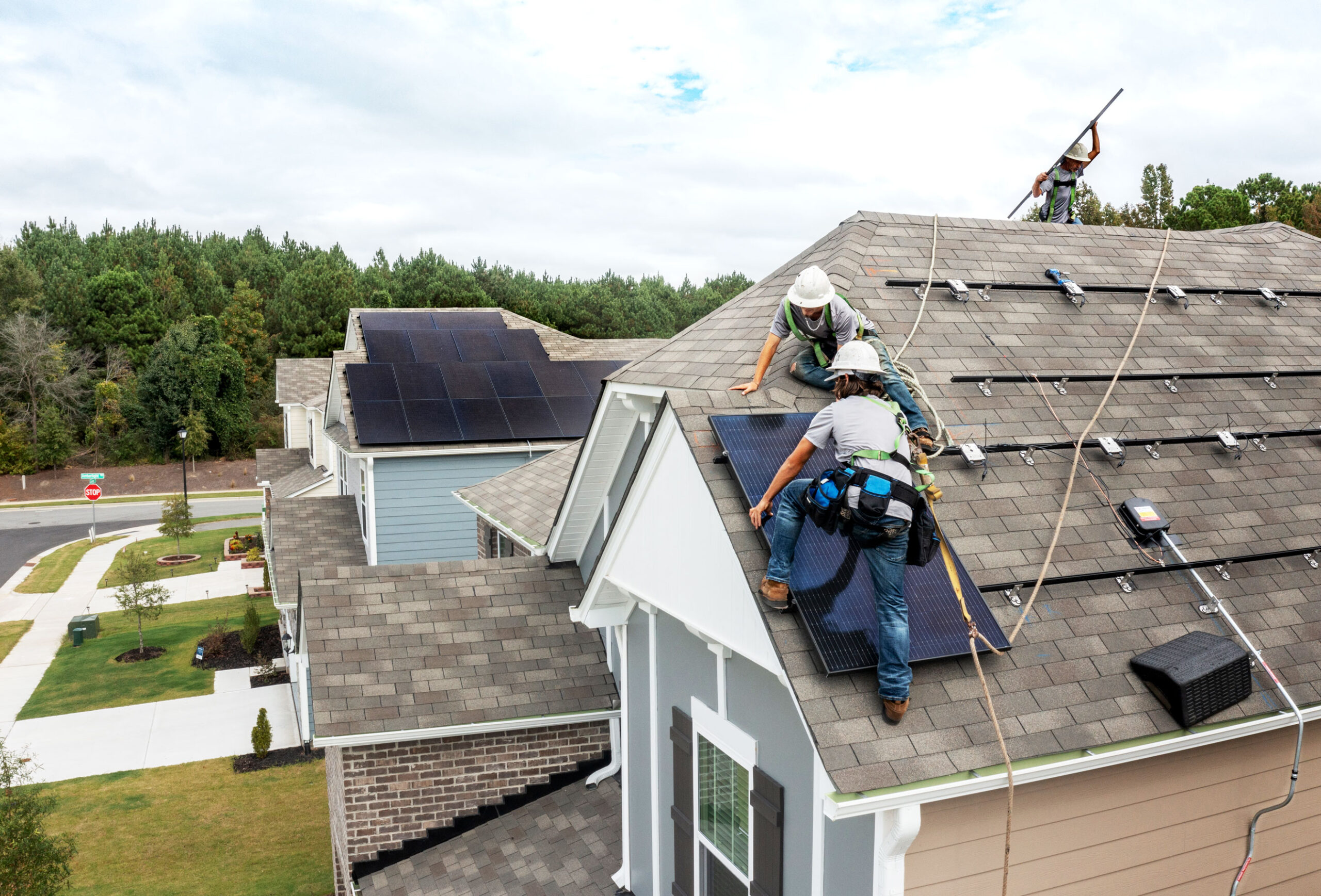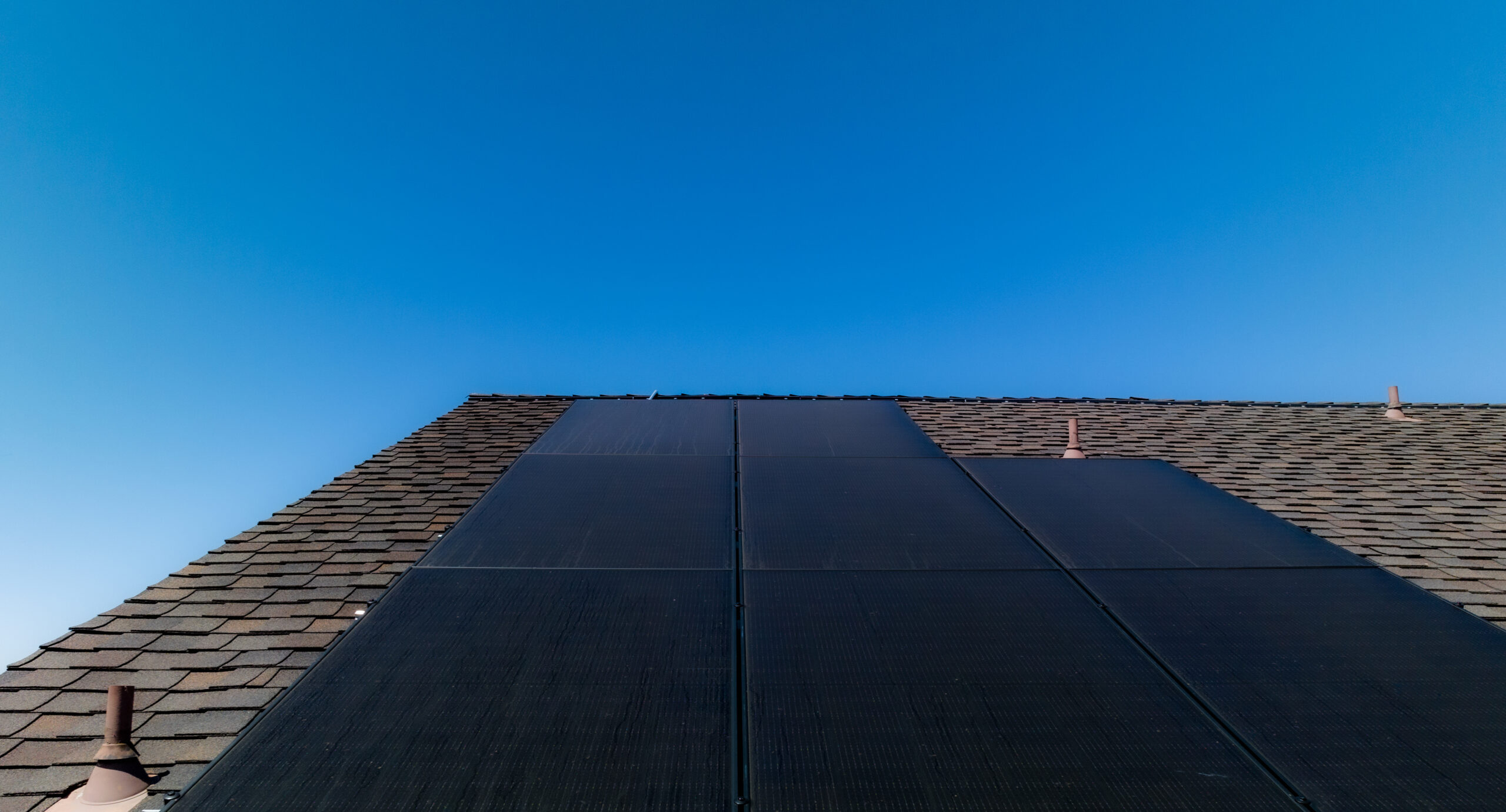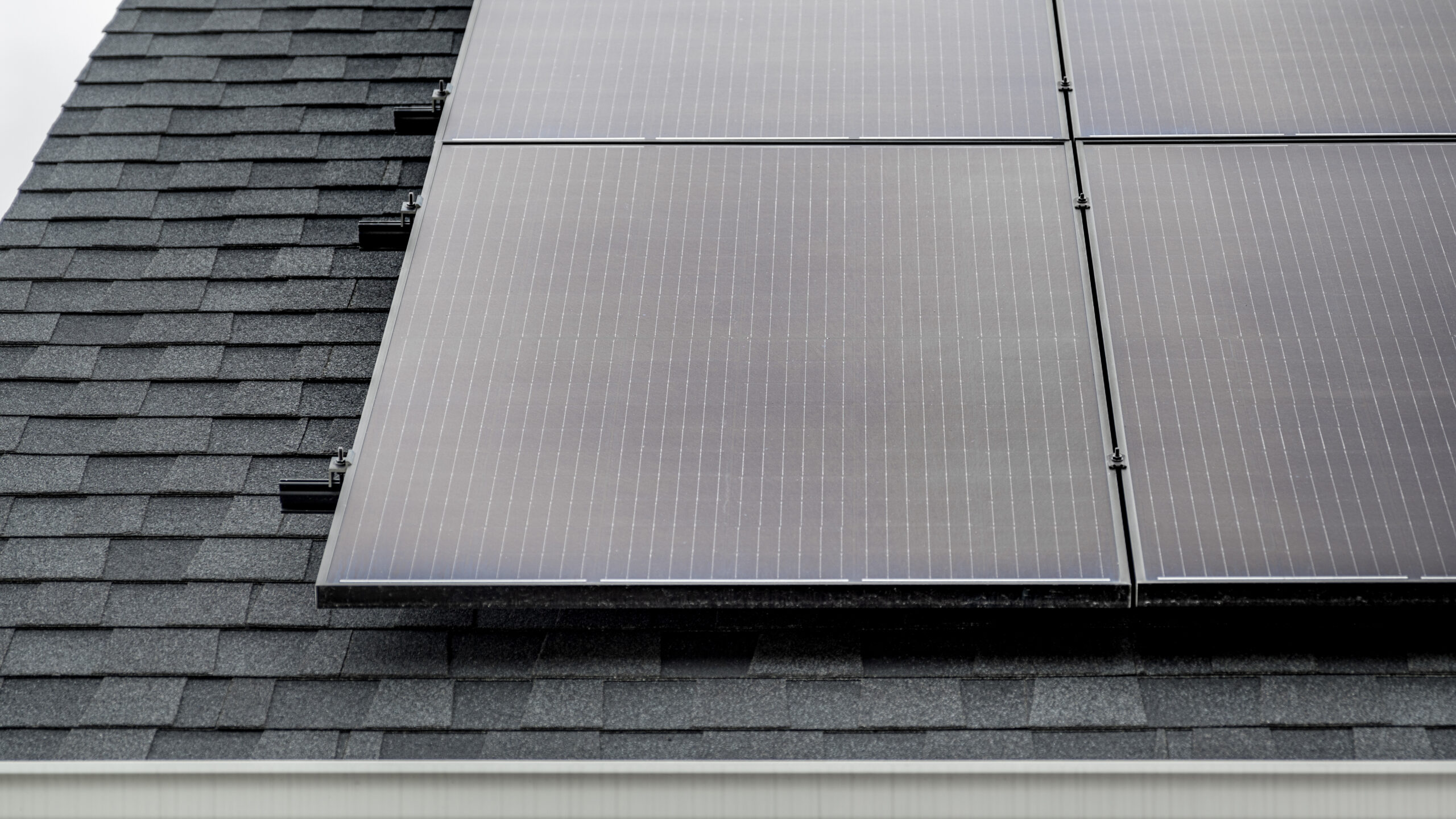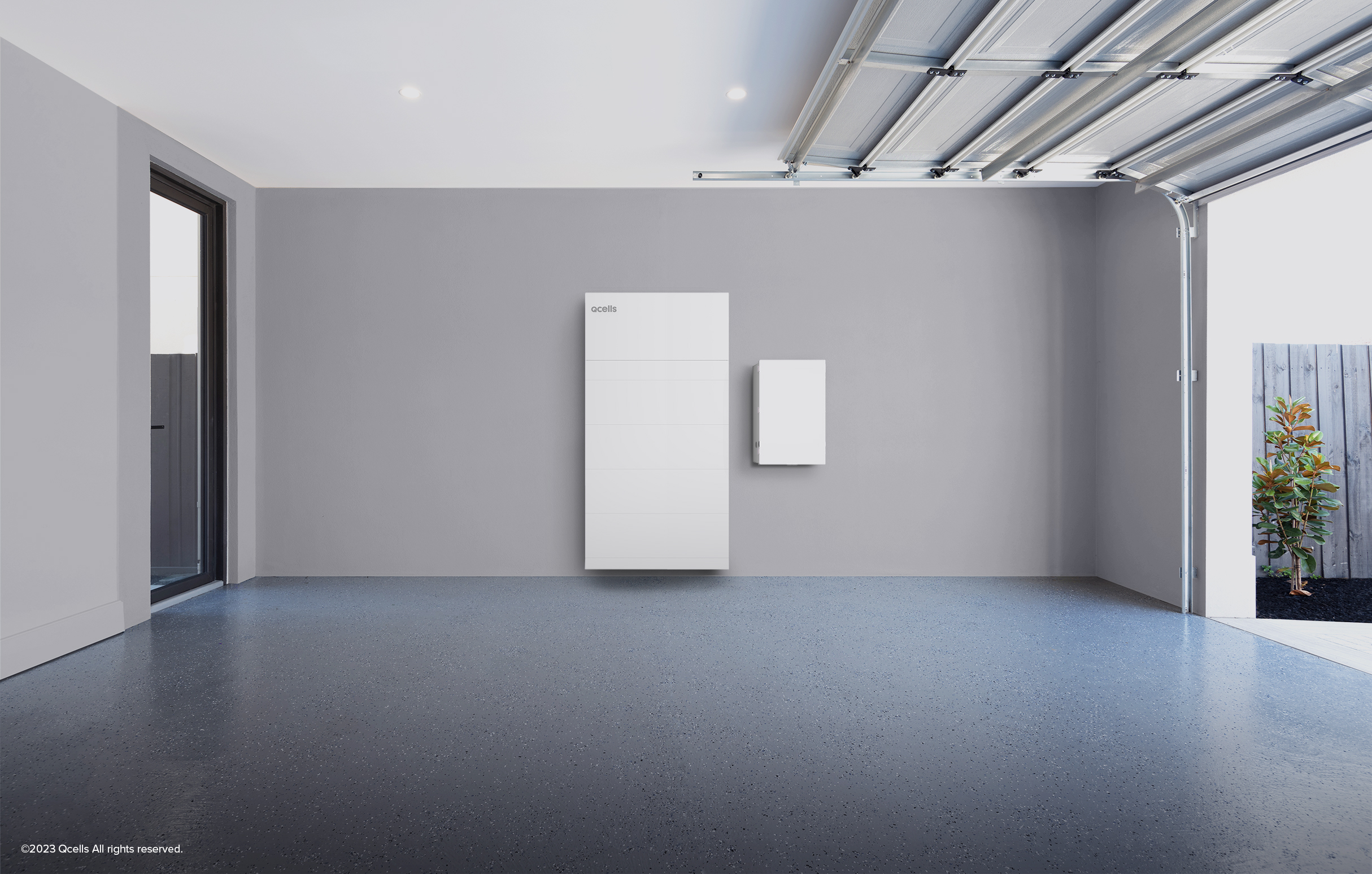Solar energy has gained immense popularity in recent years as a clean and sustainable source of electricity. If you are considering switching to solar power, you may wonder whether solar panel installation is right for your home.
Let’s look at the step-by-step process of planning for a solar installation to help you determine if solar energy is a good fit for your needs. We’ll also provide valuable insights for finding a reliable solar installer in your area.
How to Plan for Solar Installation – Step by Step
Going solar is an exciting step toward harnessing the sun’s power and reducing your carbon footprint. However, it’s important to determine if solar energy is right for your electricity needs and understand how to plan for a system to ensure a smooth and efficient installation process. Here are our steps for planning a successful solar panel installation.
Step 1: Check Your Electric Bill
The first step in planning for solar installation is to assess your current energy usage. Take a look at your electricity bill and analyze your energy consumption patterns. Understanding how much electricity you use monthly will help you determine the size and number of panels needed to meet your energy needs.
Step 2: Monitor Home Efficiency
Before investing in solar panels, ensuring your home is as energy-efficient as possible is vital. You should implement energy-saving measures such as sealing air leaks, upgrading home insulation, installing new windows, and replacing outdated appliances to help significantly reduce your overall energy consumption.
By optimizing your home’s energy efficiency, you can maximize the benefits of solar energy and potentially reduce the size of the home solar system you need.
Step 3: Decide If Solar Is a Good Fit
While solar energy can be a great fit for many homes, it’s still important to consider a few factors before making a final decision. In addition to reviewing your electricity bill and monitoring home efficiency, you should evaluate the location and orientation of your home to determine its solar potential.
To be ideally situated for solar panels on your roof, your home should receive ample sunlight throughout the day without any significant shading from trees, other homes, nearby buildings, or other obstructions. Additionally, you should inspect your roof to ensure it has enough space to accommodate the required number of solar panels.
Step 4: Research Government Incentives
One of the most significant advantages of going solar is the availability of local, state, and government incentives, rebates, and tax credits. Take some time to research which of these programs are available in your area to encourage the adoption of renewable energy. These programs can significantly reduce upfront solar panel installation costs and make the transition to solar more affordable.
Step 5: Consider Additional Energy Offsets
While planning for solar panel installation, it’s important to consider additional energy offsets to ensure you’re looking for a home solar system that meets both present and future energy needs while also accounting for solar panel degradation. Future energy consumption can change based on increased household size, upgraded appliances, and more, so accounting for these eventualities now will ensure the home solar system is large enough to accommodate all future needs.
Step 6: Choose a Solar Installer
Choosing the right solar installation company ensures a smooth, successful, and stress-free installation process. However, not all solar installer companies are created equal, so it’s essential to do your research before making a final decision.
You should research reputable solar installer companies in your area and compare their services, expertise, and customer reviews to understand each option better. Look for solar installers who are licensed, certified, and experienced in solar panel installation and will take the time to assess your energy needs, provide customized recommendations, and guide you through the entire process.
How Are Solar Panels Installed on a Roof?
Once you’ve finished your research and selected a solar installer, they will begin the steps of the installation process. The overall solar panel roof installation involves a few steps before you’re ready to use your home solar system.
1. Design & Site Assessment
The solar installer will come to your home to assess the roof’s condition, check the orientation, and inspect the shading situation to determine the system size and the optimal angle and placement of your solar panels.
2. Permitting
Your installer will obtain the necessary permits from local authorities as well as a Homeowners Association, if you have one, to ensure your installation is good to go.
3. Roof Preparation
Your roof needs to be clean, debris-free, and structurally sound to be ready for solar panels. The solar installer will ensure your roof is prepared and make any necessary repairs before solar installation.
4. Mounting the Panels
Once the roof is clear and sturdy, the solar installer securely mounts your solar panels on the roof using specialized mounting brackets and racks. The solar panels are positioned precisely to ensure maximum sunlight exposure.
5. Electrical Wiring
After the panels are mounted securely, it’s time to connect them to your home’s electrical system and make sure all the wiring is properly connected. This is also the time to install the solar inverter, which converts the direct current power generated by the solar panels into usable alternating current power.
6. Inspection and Connection
When the solar panel installation is complete, a local inspector from the city will visit your home to ensure the system meets all safety and code requirements. Once they have approved and signed off on your home solar system, it will be connected to the grid, and you’ll be able to start generating your own energy.
Can I install Solar Myself?
While there are many home maintenance tasks you can do yourself to save some money, solar panel DIY installation shouldn’t be one of them. Installing solar panels involves complex electrical work and requires extensive expertise to ensure safety and optimal performance. That’s why hiring a professional solar company is always recommended instead of taking a DIY approach.
Professional solar installers have the experience and know-how to handle all aspects of the installation process, including system design, permits, and electrical connections. By entrusting your solar installation to a qualified installer instead of performing home solar panel DIY, you can have peace of mind knowing that the job will be done safely, correctly, and efficiently.
How to Find a Solar Installer in Your Area
When it comes to finding a solar installer in your area, you’ll likely have several options to choose from. But how can you be sure you’re finding the best solar installer for you? Here are a few steps to help you in your search.
1. Research Online
Start by doing an online search for local ‘solar installers near me.’ You should look for companies with positive reviews, certifications, and a solid track record of installations.
2. Seek Recommendations
It’s likely that you have friends, family, or neighbors who have already made the switch to solar for their homes. You can ask them for installer recommendations during your own search since their first-hand experience can provide valuable insights into the quality of products and services provided by different installers.
3. Check Certifications and Experience
You should double-check that the solar companies you are considering are certified by reputable organizations such as the North American Board of Certified Energy Practitioners (NABCEP). Certifications ensure the installer has undergone rigorous training and meets all industry standards.
4. Request Multiple Quotes
For any big service, including solar panel installation, you should contact at least three or more solar installer companies to get an installation quote for your project. Ensure that the installers you contact will visit your home for an inspection rather than just give a quote over the phone. This is the best way to get a detailed and accurate quote that covers everything from outlining the system design and what equipment you’ll need, to providing the final solar panel installation cost estimate.
5. Compare Offers
With multiple quotes come multiple offers, meaning you’ll need to compare all of them before making a decision. Make sure to look at different factors, including pricing, warranties, equipment, and the proposed timeline, to see which is the right fit for your needs. Keep in mind, however, that the cheapest option isn’t always the best choice, so you should consider the overall value and reputation of the installer when you make your final choice.
6. Ask for References
You may have heard about certain solar installer companies from a trusted source, but don’t be afraid to ask prospective installers for some references you can contact. Get in touch with previous customers and ask about their experience with the installer, the installation process, and the overall performance of the installed system.
7. Evaluate Customer Service
Good customer service begins at the moment of first contact and should continue throughout the working relationship. Pay attention to how responsive and knowledgeable an installer is during your interactions and how they treat you. A reliable solar installer with exceptional customer service will be happy to address your concerns, answer your questions, and provide support even after the installation project is complete.
8. Trust Your Gut
If something feels off about a solar company you’re in contact with, you may want to reconsider working with them. Trust your gut, and don’t be afraid to continue researching companies until you find one that treats you well and you feel comfortable working with.
What to Ask During Your Solar Consultation
During your home solar consultation, there are a few things you should ask the installer to help you better understand if solar energy is a good fit for your home. Some questions can include:
- How can solar energy benefit my home and reduce my energy costs?
- What size solar system do I need to meet my energy requirements?
- What is the estimated installation timeline?
- What warranties are provided for the solar panels and other components?
- What financing options are available?
- How does the solar panel installation process work, and what permits are required?
- Can you provide references or examples of previous installations?
- How does the maintenance and monitoring of the system work?
By asking these questions during a consultation, you can get a better idea of the entire installation process, the financial responsibilities of installing solar, and how capable and professional the installer is. This information can help you make informed decisions regarding your installation while helping you feel confident about moving toward a green and more sustainable future.
Contact Us
If you are considering adding solar panels to your home but have questions about the panels or the installation process, Qcells is here to help. We can answer your questions, address your concerns, and give you peace of mind that solar is the right option for you.
We are committed to delivering high-quality, top-performing solar panels and creating an exceptional customer experience. You can trust our team to give you honest, straightforward information so you can make the best decision for your home energy needs. Contact our team to learn more today.





 USA & Canada
USA & Canada Korea
Korea Germany
Germany United Kingdom
United Kingdom France
France Italy
Italy Netherlands
Netherlands Greece
Greece Poland
Poland Portugal
Portugal Hungary
Hungary Spain
Spain Australia
Australia Japan
Japan